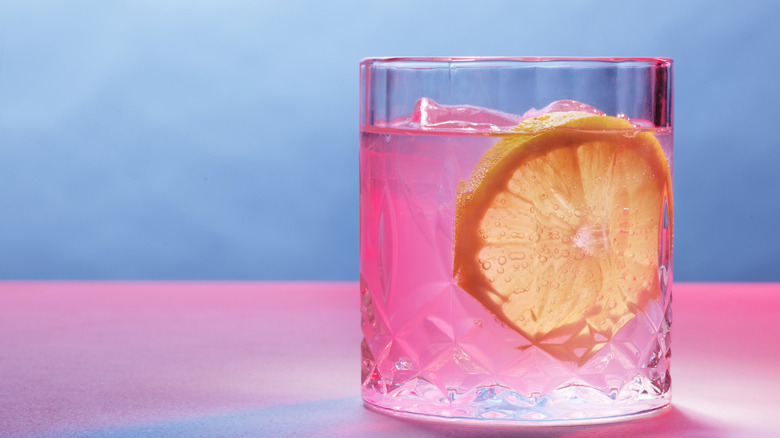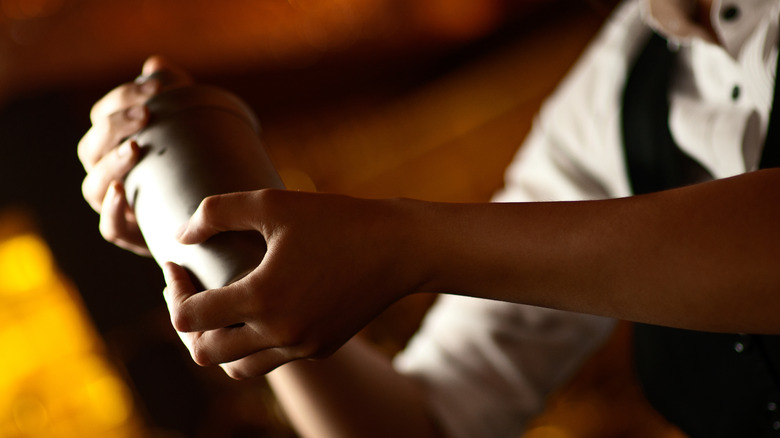One Unexpected Ingredient You Should Keep On Hand For Mocktails
It is no secret that mocktails (also known as non-alcoholic or zero-proof cocktails) have completely shifted American drinking culture in recent years. In fact, fewer than 40% of young adults in the U.S. regularly drink alcohol as of 2023 (per Gallup). As the non-alcoholic drinks sector continues to see explosive growth, even celebrity chefs like Alton Brown are expanding their bar carts with bottles of zero-proof spirits. But there's one unexpected liquor-free ingredient that Hotel Chelsea co-owner and beverage director Brian Evans believes every mocktail enthusiast should keep on hand: verjus.
Sharing his expertise with us just after the first-ever New York Bartender Week, Evans explained that "verjus, or unfermented juice of wine grapes, becomes super handy when incorporating tartaric acid without overpowering the subtleties of non-alcoholic spirits and ingredients." Tartaric acid, which occurs naturally in grapes, is a compound beloved by bartenders and mixologists looking to add a unique tangy brightness to a cocktail.
Though the name verjus is derived from the French term for green juice, this bright unripened juice can be made with red or white grapes of any variety. While most folks are familiar with using lemon to introduce sour citric acid to their drinks, a splash of tart verjus can go a long way when a hint of dry, gentle acidity is what your mocktail needs. If you're looking for inspiration, add a little bit of white verjus to tonic and soda water for a refreshing spritz, or mix some in with simple syrup and a generous pour of alcohol-free Champagne for a zero-proof French 75.
More ways to shake up your mocktails
There are seemingly infinite ways to customize and craft delicious mocktails at home — the only limit is your imagination and personal preference. Staying stocked up on non-alcoholic bar cart essentials like tropical fruit purees or flavorful herbal teas is an easy way to make zero-proof happy hour a breeze. Lapsang souchong, a deeply smoky black tea hailing from China's Fujian province, is a top-notch option for creating robust whiskey-inspired mocktails like a non-alcoholic Manhattan or old fashioned.
Brian Evans also suggests stepping up your mocktail game by seeking out "internationally-grown ingredients that lend a strong flavor intensity to traditional 'simple syrup' infusions." A flavor such as "vanilla and custard-like" pandan leaves, which grow across Southeast Asia, can be used to make a creamy and coconut-forward pandan colada. "Intensely cherried" pickled sakura leaves, harvested from cherry blossom trees in Japan, can add a floral touch to a spirit-free lychee martini. Indian vetiver roots, also known as khus, are commonly used in perfume production and carry a "distinct piney and resinous scent" that is right at home in a minty lemonade or mocktail mojito.


